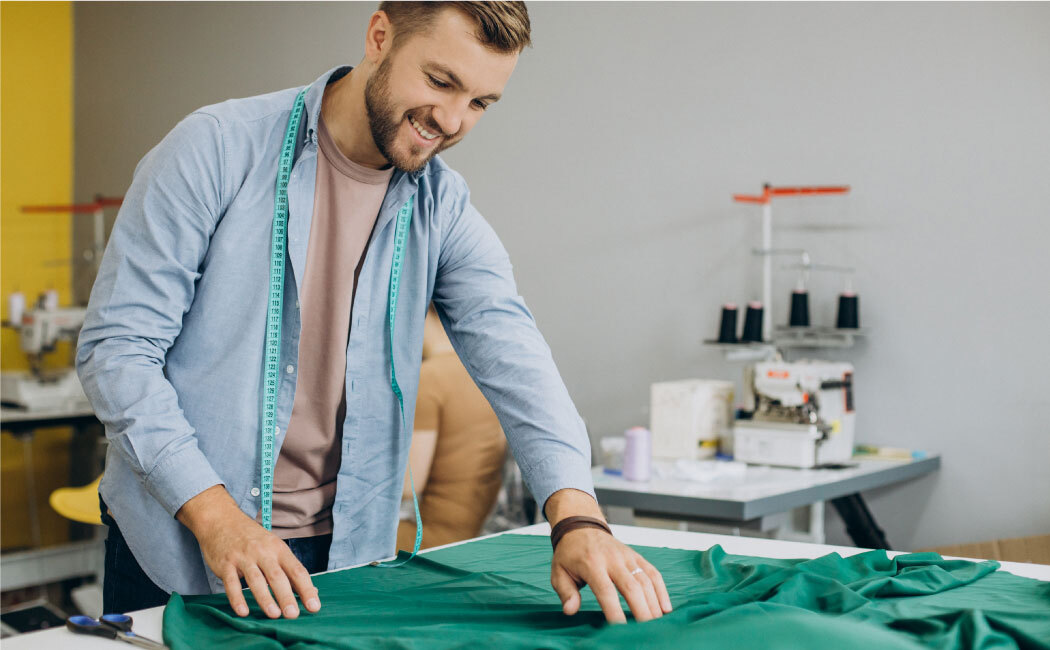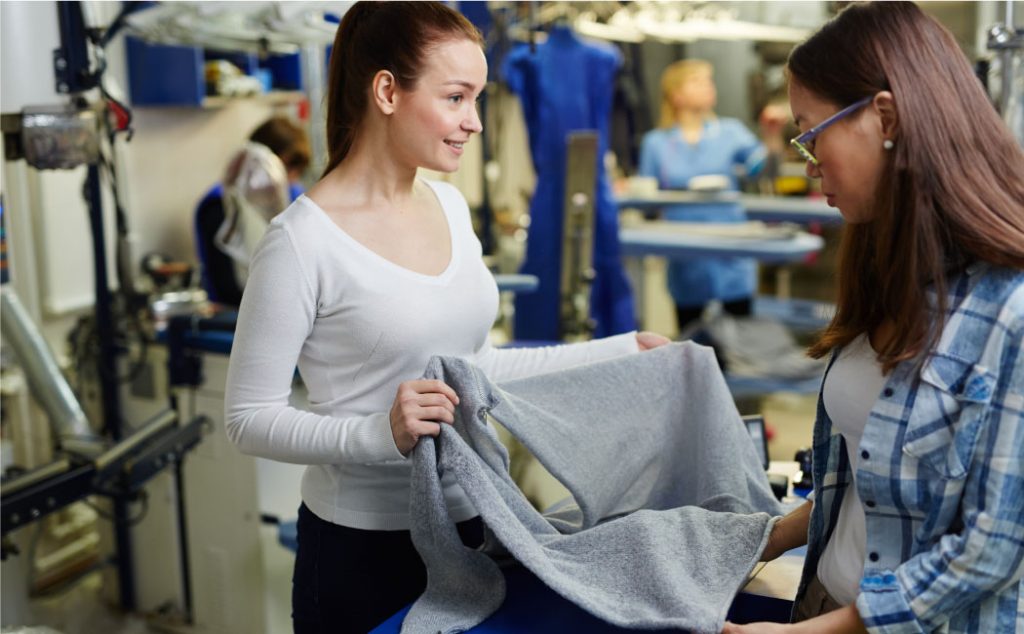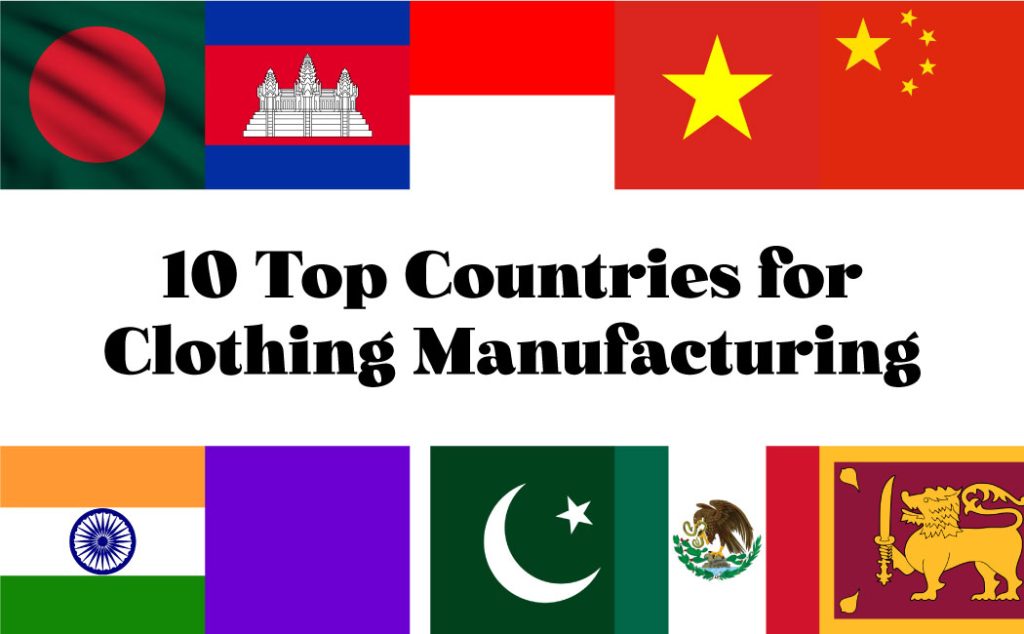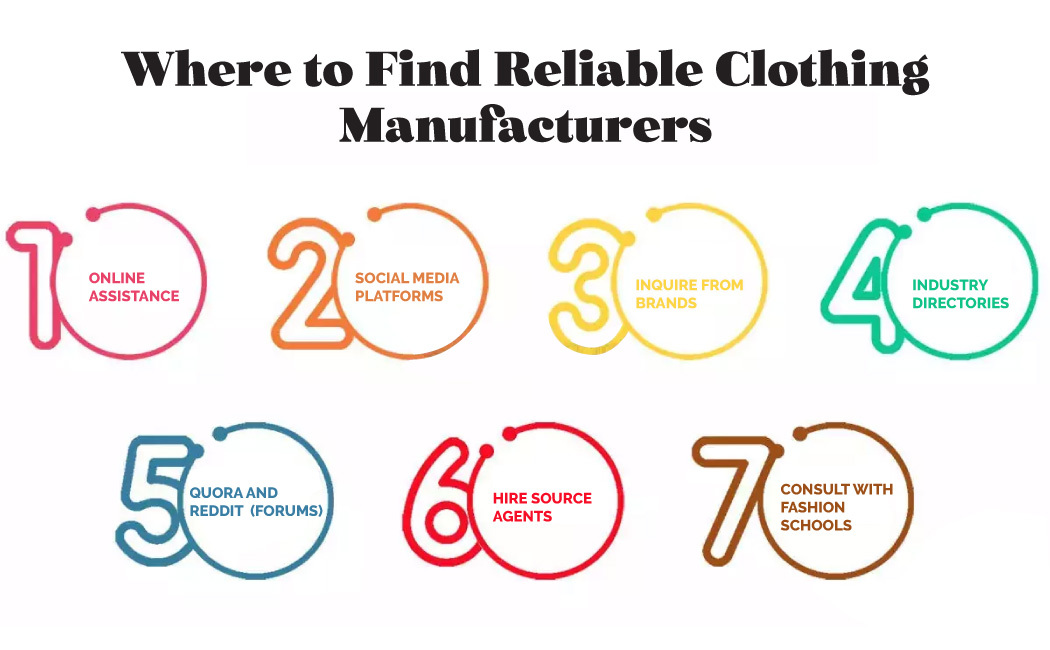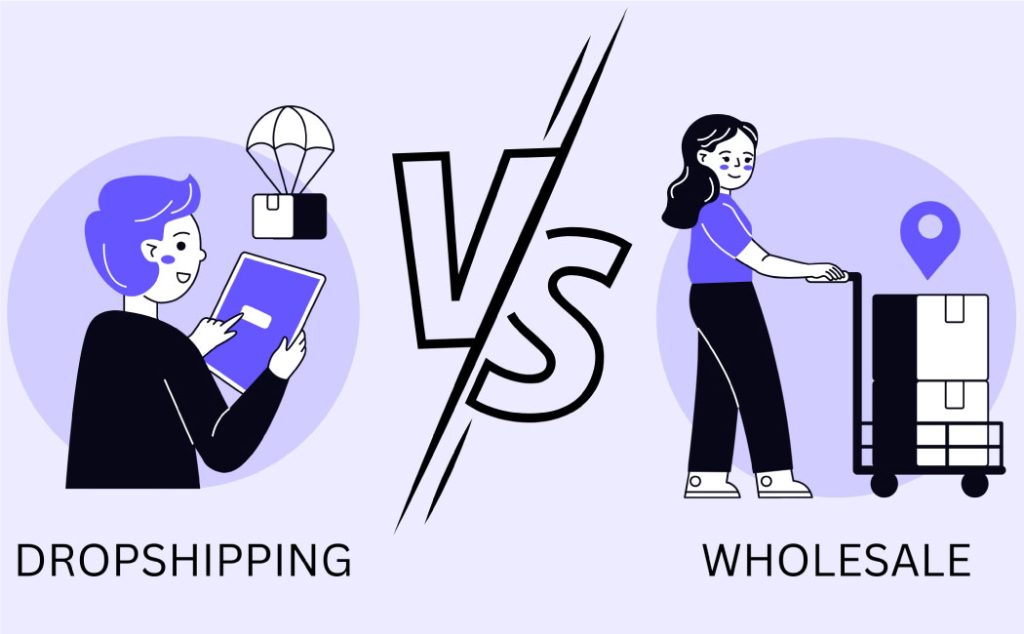The modern era demands high-quality and trendy custom clothes today. Whether it’s the fashion industry or any other clothing market, every business or beginner dealing in apparel requires appealing clothes. This is why apparel manufacturers work closely with clothing brands to create their preferred and on-demand apparel products in order for customers to get customized items.
Also, finding a manufacturer for a clothing brand you want to make successful shouldn’t be hard. Therefore, here is a complete guide that proves to be the best way to find clothing manufacturers for your new or established apparel line.
Do You Really Need a Clothing Manufacturer?
Yes, especially if you are starting a clothing line. The reason is that launching a brand is not easy if you don’t have a producer of clothes making quality apparel for you. If you are launching a startup and need to become a renowned brand, you will have to keep your customers satisfied with quick services and the finest quality products.
Certainly, it is difficult for a brand to produce clothes on its own, especially when it comes to bulk production. For example, if you are running a cap or t-shirt business and your customers demand outstanding products with various patterns and designs, you will definitely need the best clothing manufacturers to create such products for you since they have the equipment and workforce to do that.
Moreover, if you need to showcase your brand in the form of products to create and enhance your identity, a good manufacturer will help you with your logo printing on the products and make them unique enough to help you stand out.
Understanding Clothing Manufacturers
A clothing manufacturer is the creator of apparel for clothing startups or big brands using various manufacturing methods and technologies. Manufacturing companies usually specialize in cut-and-sew services, design-making, and shaping clothing according to the requirements of clothing lines. They are associated with multiple businesses to manufacture custom products since each brand works differently and wants diverse products.
So, you can have an understanding of what clothing manufacturers are, their types, and different manufacturing processes by diving into the details of their promising work.
Types of Clothing Manufacturers
There are various types of manufacturers that work in accordance with the brands’ preferred clothing. Here are some of the types:
- Small batch, low MOQ Manufacturers
- Mass Production Manufacturers
- Domestic Manufacturers
- Overseas Manufacturers
- CMT (cut-make-trim manufacturers)
- Original Equipment Manufacturers (OEM)
- Original Design Manufacturer (ODM)
- Private Label Clothing Manufacturers
Domestic vs. Overseas Manufacturers
Domestic clothing manufacturers produce apparel in your own state, whether it is the USA, Canada, or any other region. Overseas manufacturers, on the other hand, refer to getting production services from outside your region, state, or country.
Domestic manufacturing of apparel plays a vital role when you want to have physical access to the vicinity and easy communication. In terms of lower shipping costs and turnaround time, domestic is the right choice for clothing production. However, it is not best suited if you need reasonable labor and other production expenses. For instance, the USA itself is really expensive in terms of manufacturing clothes, sourcing fabrics, and wages.
Overseas manufacturing is best if you want to have lower manufacturing costs, fabric options, wages, and less regulation. It can be said that overseas clothing manufacturers are more affordable than domestic. However, the downside indicates that you will have to experience a longer turnaround and shipping time.
All these conditions can assist you in choosing the right apparel manufacturer since it is always up to clothing brands or companies to go with their preference.
10 Top Countries for Clothing Manufacturing
These are the 10 best garment manufacturing countries:
- China: Huge Industrial industrial infrastructure, a skilled workforce, the finest quality raw materials, and promising supply chains.
- India: Good craftsmanship, handwoven fabrics, and modern manufacturing facilities.
- Bangladesh: Low labor costs; second largest textile exporter; safety standards; fast fashion producer.
- Pakistan: Rich and massive textile heritage; prime producer of cotton-made materials and clothes; high-quality and diverse designs; modern techniques of manufacturing apparel.
- Vietnam: Emerging infrastructure, skilled labor, growing clothing industry, efficient production.
- Turkey: Unique location, history of textile production, cutting-edge technology, good craftsmanship.
- Cambodia: Competitive costs of labor, trade agreements, garment vicinities catering to international brands, and fast fashion production.
- Indonesia: Diversity in craftmanship, skilled labor, production of trendy and modern fashion apparel, vast fabric options from batik to many others, major textile producers, and big markets.
- Mexico: Developed infrastructure, an experienced and skilled workforce, and mass producers of basic and fast fashion apparel.
- Sri Lanka: Niche experts, sustainable and ethical manufacturing, high-quality apparel production, innovative manufacturers, specialized in eco-friendly, activewear, and intimate clothing, and caters to international brands.
Where to Find Reliable Clothing Manufacturers
Trade Shows And Meetups
One of the most effective ways to find a manufacturer is to be a part of industrial meetups and trade shows where the manufacturers showcase their business models and products. You can go to such events and meet production companies. Talk to them and explore their specialties.
Online Assistance
You can always take assistance from the internet and search for productive and creative clothing manufacturers. There are many suppliers with an online presence. Go to their websites and have a chat with their chat support person. It will be easier if you go through their website and look at the products to get a better understanding.
You can specify your search too. For example, you can search clothing manufacturers for startups, and your search engine will show you all the relevant results.
Social Media Platforms
Go to Instagram, Facebook, or any other social media platform you use to search for the manufacturers. You can join the community pages, where hundreds of suppliers post about their activities on a daily basis. You can also join WhatsApp groups of manufacturers in order to learn about their products and services.
Inquire From Brands
Another easy way to find clothing manufacturers is through referrals. You can approach other brands or startups to ask if they can recommend any reliable manufacturers. Mostly, brands require customization experts for their clothing brands. So, you can ask them about custom clothing manufacturers if you need custom products.
Industry directories
There are many industries, such as ThomasNet and Maker’s Row. These directories hold the data of clothing manufacturers. You can use their email address, contact numbers, or addresses to approach them.
Quora and Reddit (forums)
You can find the manufacturers of clothes by visiting Quora and Reddit, which provide answers to questions people ask. The forums can help you if you ask the right questions, like, which manufacturers will be best for private labeling? Who are the best small-scale manufacturers in the USA? Questions like these will get you your desired results.
Hire Source Agents
Source agents will find the perfect apparel manufacturers for your brand and notify you about the findings. You can choose from the contact options provided by the agents and approach your preferred supplier.
Consult with Fashion Schools
Fashion schools have strong associations with multiple clothing suppliers since they work closely with them. You can have a chat with these schools for recommendations or go to their fashion events to find the manufacturers.
Choosing the Right Manufacturer for Your Clothing Business
You can choose the right manufacturer for your clothing brand by understanding their traits, qualities, and specialties. For example, some manufacturers know all about the types of fabric for clothing to make the best apparel products for customers. Here are some characteristics for you to look at and make the right decision.
1. Quality
One of the best ways to choose a clothing manufacturer or manufacturing company is by checking its perfection in the quality of apparel. You can see that by testing if the fabric used in making clothes is of fine quality.
2. Price
Another important thing is the reasonable pricing that a clothing supplier can offer brands. You need to see if their costs of manufacturing, fabric, shipping, and other related aspects are market-competitive or not.
3. Lead Time
You can analyze the lead time, which is the particular time for completing the production process. If the manufacturers are completing the order at the preferred time, then you can partner with them.
4. Minimum Order Quantity
MOQ matters a lot when it comes to small-scale manufacturing or sample making. So, check if the manufacturer is serving clothing brands or startups by offering them a reasonable MOQ option. Most reputed manufacturers like Mega Apparel entertain their clients by offering them 30 to 50 pieces as their low MOQ.
5. Communication
Communication is the key to understanding the needs of a client. Thus, it is a brand’s responsibility to look for a manufacturer that prioritizes customer support and effective communication.
6. Location
The location of the manufacturing company is very important since it helps in providing affordable production prices and other benefits. For example, if your clothing brand is in the USA, you should not choose a domestic manufacturer because of the high labor and production costs.
An overseas supplier who makes products at lower prices. A plus point will be the free shipment that many known producers offer.
7. Social Responsibility
You can choose the right manufacturer on the basis of their ethical manufacturing, no harmful acts against animals, and eco-friendly packaging. All these things fall under the social responsibilities of a qualified manufacturer.
Pitfalls to Avoid When Choosing an Apparel Manufacturer
While choosing an apparel manufacturer, there are a few things that a clothing line should avoid. Here are some pitfalls that you should avoid:
Compromise on Quality
The suppliers that promise fast production often neglect quality and focus more on quantity. You need to avoid that. If they are offering you a fast pace of producing quality apparel and not fine-quality fabric, then you should better not take the risk.
No Sample Production
Checking the samples before going for bulk production is the right of every customer. So, if any supplier presents itself as the best one in the industry and doesn’t allow you to have samples, skip the meetings and chats and move on to the next manufacturer.
Because those who directly land in the bulk production phase usually neglect the quality control process. This way, if you get poor-quality products, you will have to wait much longer for your apparel to reach perfection due to repetitive production sessions. Also, it will cost you more money.
Poor Communication
Communication is necessary because a customer support representative of a manufacturing company needs to guide you through the entire manufacturing process, fabric options, turnaround, and your choices of products. If the communication is not on track, maybe you should not choose a manufacturer that lacks customer satisfaction principles.
No-Technology or Skills
Technology is greatly important today since brands require fast production and high-quality apparel. You need to see if a manufacturing company is equipped with modern machines to create bulk and the finest-quality apparel.
Quality Control
Quality control means whether a company is willing to replace flawed products. You need to figure out if the manufacturers can let you avail of this option or not.
Key Questions to Ask Potential Clothing Manufacturers
Here are some questions that you need to ask a manufacturer before making a choice:
- What is the production capacity?
- What is the low MOQ?
- What are your certifications?
- What are the previous successful projects?
- How much do you charge for making samples?
- What is your turnaround time?
- What is the process of production?
- Do you source fabric?
- What are your services other than product manufacturing?
- Do you work with contractors?
- What are the preferred payment methods?
How Much Does It Cost to Manufacture Clothes?
The cost of garment manufacturing includes various aspects such as labor, raw materials, constructed fabric, equipment, and more. All these factors play a vital role in starting and running a manufacturing company.
Exploring Alternative Models: Wholesale and Drop Shipping
You can start a dropshipping business in which you won’t need a physical location or store to keep your products. You can only sell products online, just like an e-commerce platform.
Or, you can go for a wholesale business model in which you store the products at a physical location and sell the items to customers at a retail price.
Conclusion
Finding a clothing manufacturer requires some effort if you are willing to launch your own clothing line. In this blog, there are simple steps like going to trade shows, searching online, using social media, referrals, and some other ways to find a resourceful clothing manufacturer.
You can choose the right manufacturer on the basis of quality apparel, prices, MOQ, communication, etc. to run an effective business. You can avoid certain pitfalls like no quality control, no communication, no sample production, and more to prevent yourself from choosing the wrong manufacturer of apparel.
Explore the cost of manufacturing or choose alternative business models in case you need to understand more about how the clothing industry works.


